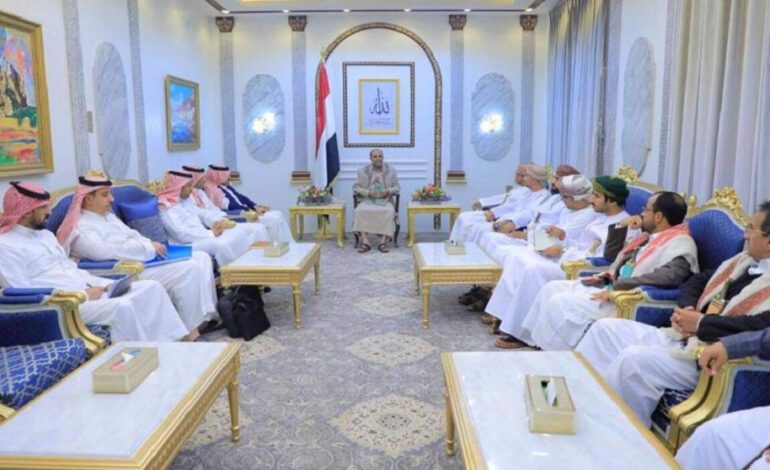The Biden administration is seeking trilateral meetings with Saudi Arabia and the United Arab Emirates as soon as this week to discuss any differences between the Gulf countries that could “upend” the peace talks currently happening between the Saudis and Yemen.
According to U.S. officials speaking with the Financial Times, Tim Lenderking, the U.S. special envoy to Yemen, is behind the agenda. Talks between the three countries could happen as soon as the United Nations General Assembly in New York on Tuesday.
The news follows an official Ansarallah delegation traveling to Riyadh days ago to pursue Omani-mediated negotiations seeking to end the war that has placed a stranglehold on Yemen since 2015. The Ansarallah resistance group controls the majority of Yemen’s populated areas, including Sanaa, the capital.
Arabic media is reporting Saudi Arabia refused to listen to all parties involved and proceeded with the talks. The Saudi-appointed Presidential Leadership Council (PLC) in Aden and the UAE-sponsored Southern Transitional Council (STC) remain loyal to the Saudi-led coalition despite being unable to influence the peace talks.
The report said the role of these coalition-backed groups “will not go beyond signing the peace treaty and attending the upcoming ceremony.” The Saudis also chose to ignore pressure from the Biden administration on the talks, which are supposedly close to being finalized.
The editor of Al-Thawri, Khaled Salman, recently said through social media, “Saudi Arabia is seriously seeking a long-term peace with Sanaa on its own path, away from U.S. pressure, to deprive Washington of any cards that may be used against it in the future.”
Salman added that the Saudi government has an “overwhelming” desire to remove itself from the “U.S. mantle.”
However, according to officials speaking with the Financial Times, the UAE has other plans, calling to “strengthen its allies in Yemen as their assessment in the conflict is going to return regardless of the deal.” The sources added, “The Saudis are much more eager to get out. They feel they can basically get the relationship they want with Ansarallah.”
Just hours before the Financial Times report was published, the UAE foreign ministry issued a statement expressing the full support of the government for peace negotiations in Saudi Arabia, ensuring that they “enhance peace and stability in Yemen and the region.”
The peace talks with Yemen aren’t the only example of the Saudi government wanting to distance itself from Washington. Last week, Saudi-owned Elaph reported that the Saudi government had recently informed the Biden administration that they were stepping away from “any discussions related to normalization with Israel.”
Elaph cited an anonymous official from Israeli Prime Minister Benjamin Netanyahu’s office, saying that the actions of the Jewish-supremacist ministers Bezalel Smotrich and Itamar Ben Gvir were “torpedoing any possibility” of peace with Riyadh.
On Sunday, an aide to the Israeli prime minister and a senior official from the Biden administration both denied Elaph’s report, saying it was “false.”
Saudi and Israeli normalization talks brokered by the U.S. had progressed recently, forming a so-called “megadeal” that would have also seen the Biden administration providing security guarantees to Riyadh, Washington support and assistance developing Saudi civilian nuclear program, and Saudi access to American advanced weaponry.
However, the Saudis have publicly stated that any normalization with the Israeli government depended on significant concessions toward the Palestinians, based on the 2002 Arab Peace initiative, calling for an independent Palestinian state with east Jerusalem as the capital.






Leave a Reply